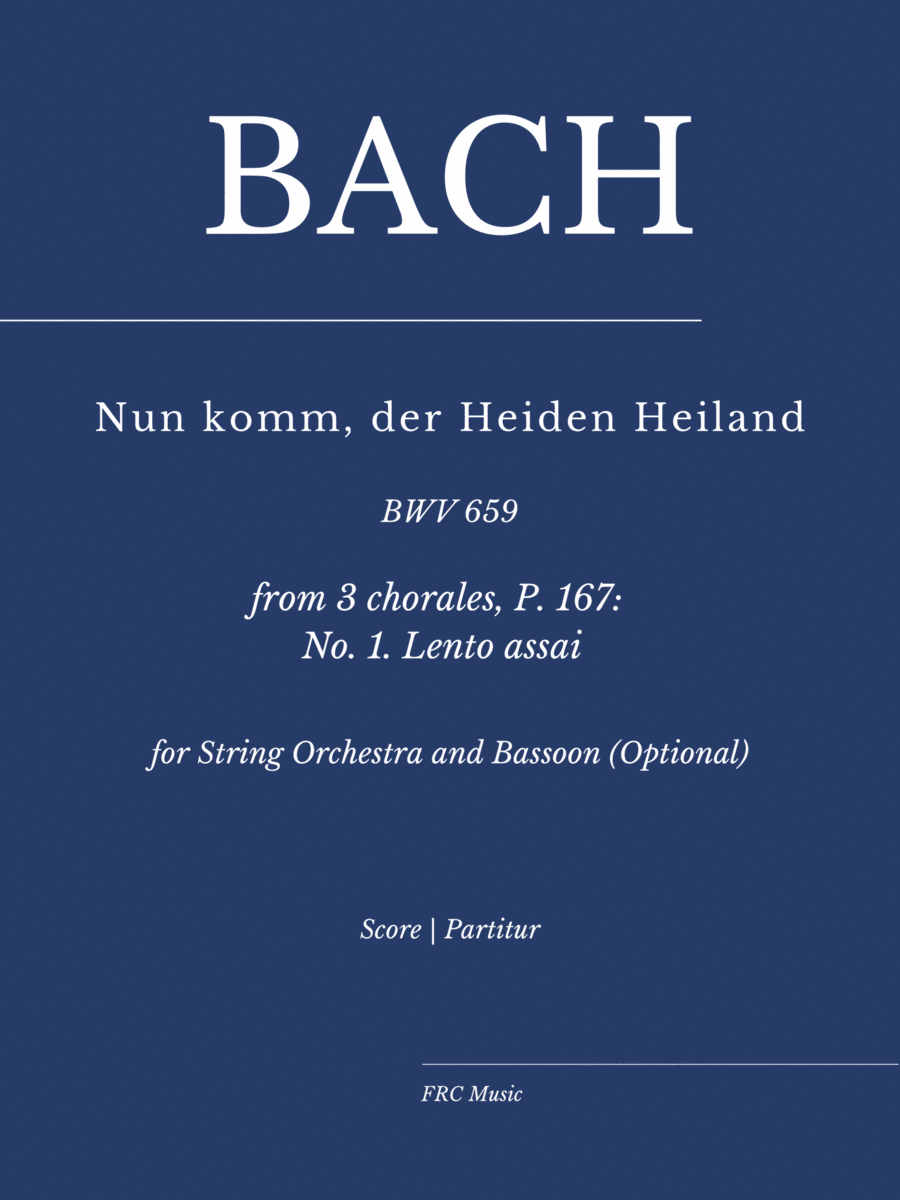String Orchestra - Level 4 - Digital Download SKU: A0.1217215 By Johann Sebastian Bach and Ottorino Respighi. By Johann Sebastian Bach. Arranged by Flavio Regis Cunha. Contemporary,Contest,Festival,Film/TV,Instructional,Sacred. Score and Parts. 16 pages. FRC Music #813753. Published by FRC Music (A0.1217215). Bach: Nun Komm'der Heiden Heiland - from 3 chorales, P. 167: No. 1. Lento assai, BWV 659 - Orchestral interpretation by Ottorino Respighi.Nun komm, der Heiden Heiland (original: Nu kom der Heyden heyland, English: Savior of the nations, come, literally: Now come, Saviour of the heathen) is a Lutheran chorale of 1524 with words written by Martin Luther, based on Veni redemptor gentium by Ambrose, and a melody, Zahn 1174, based on its plainchant. It was printed in the Erfurt Enchiridion of 1524.Nun komm, der Heiden Heiland continues to be used in modern settings. It appears in liturgically oriented Christian hymnals, for example the Lutheran Book of Worship, and as the cantus firmus for organ compositions.The song was the prominent hymn for the first Sunday of Advent for centuries. It was used widely in organ settings by Protestant Baroque composers, most notably Johann Sebastian Bach, who also composed two church cantatas beginning with the hymn. Later settings include works by Ottorino Respighy, Max Reger, Brian Easdale and Siegfried Strohbach.English versions include Savior of the nations, come by William Morton Reynolds, published in 1851.for String Orchestra (Bassoon Optional).from 3 Choirs: orchestral interpretation by Ottorino Respighi (3 corali : interpretazione orchestrale di Ottorino Respighi).from Bach - 3 chorales, P. 167:  No. 1. Lento assai  (after J.S. Bach's Nun komm, der Heiden Heiland, BWV 659) for String Orchestra (with basson optional). Orchestration by Ottorino Respighi (1930).Advanced Intermediate LevelFormat: Concert, 9 x 12 inches16 pagesFull Score and Orchestral Parts.
